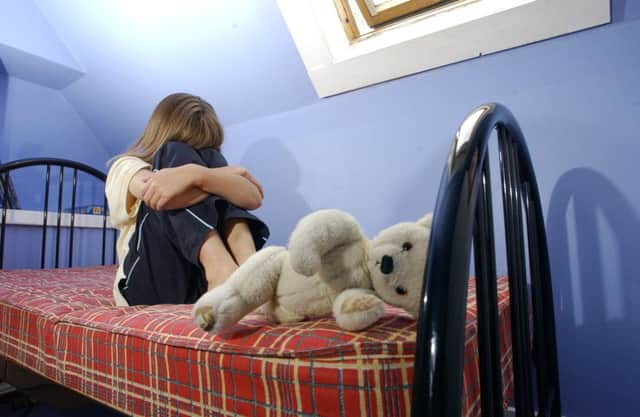Lizzy Buchan: We must teach children it's ok to ask for help


The rising number of children and teenagers being prescribed antidepressants makes disturbing reading.
New figures presented in Holyrood reveal the devastating toll of mental illness on young people, as the number of under-21s taking these medications has almost doubled since 2009 to nearly 24,000.
Advertisement
Hide AdAdvertisement
Hide AdThis includes more than 1,100 children under the age of 14 who were given antidepressant prescriptions.
The publication of these figures attracted plenty of attention earlier this week but the issue is more complex than it first appears.
It is clear that greater numbers of people are seeking help for mental health problems across all age brackets.
Huge efforts have been made to reduce stigma and raise awareness across Scotland, and these are starting to bear fruit.
However this is not enough to explain why so many thousands of children, and teenagers in particular, are struggling to cope.
The pressures of social media are often highlighted for promoting envy and insecurity among young users, whose lives are scrutinised in a way that could never have been imagined a generation ago.
Social media clearly plays a role, but there are many other more traditional factors such as family breakdowns and bullying at school that could be contributing to a child’s unhappiness.
Putting aside the cause, there is also the issue of whether young people are being ‘parked on pills’ because it is easier and cheaper than providing talking therapies.
Advertisement
Hide AdAdvertisement
Hide AdIn some cases medication will be the best option but antidepressants can cause terrible side effects such as confusion, anxiety and hallucinations, as well as numerous withdrawal symptoms.
Some experts suggest that popping pills will not provide a long term solution, as antidepressants only mask the feelings rather than getting to the root of what is wrong.
Sadly waiting times for talking therapies – for instance counselling – particularly for children, can be lengthy and vastly dependent on where you live.
The SNP made a big show of promising to reduce prescriptions for the medicines back in 2007, pledging to slash the increase in the number of people taking antidepressants to zero by 2009/10.
Instead the numbers across all age groups have steadily increased year on year.
Questions should be asked about why this has gone so wrong, but treating the issue as a political football is not constructive either.
What we need are properly resourced mental health services across the nation, where counselling can be accessed quickly by those who need it.
Intervening early before the need for medication must be a priority.
Advertisement
Hide AdAdvertisement
Hide AdDiscussing mental health at an earlier age could also be beneficial, although careful consideration needs to go into how and when this could reap the most benefits.
If children learn early that it is OK to ask for help then that should set them in good stead for later life.
We should also take a moment to recognise that each one of these young people included in the figures has taken the extraordinarily brave step of admitting they need help.
No-one should be demonised for taking antidepressants, as addressing a problem is not a sign of weakness but of strength.